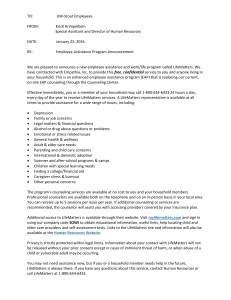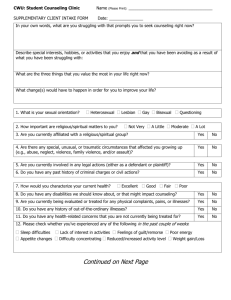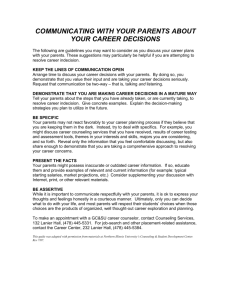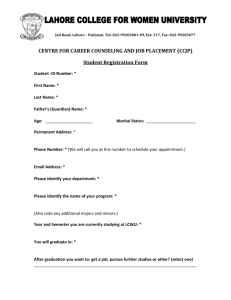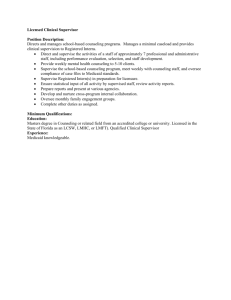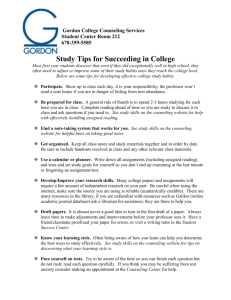Transitioning to College
advertisement
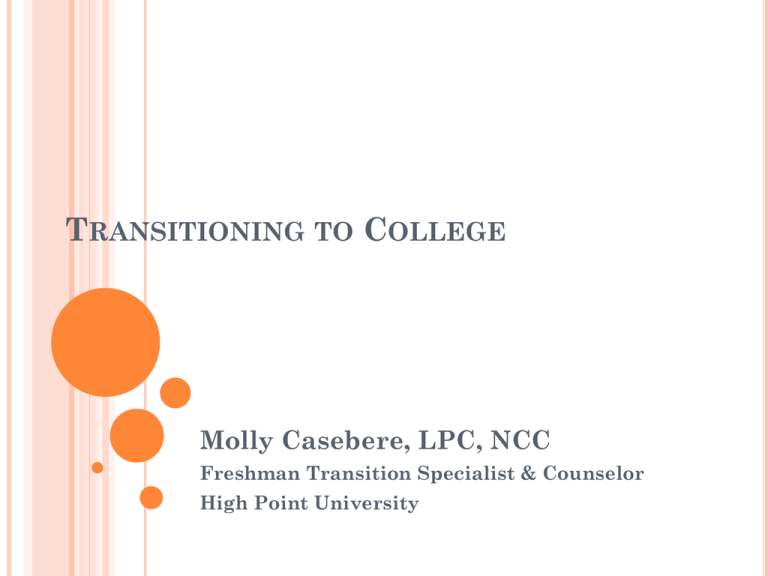
TRANSITIONING TO COLLEGE Molly Casebere, LPC, NCC Freshman Transition Specialist & Counselor High Point University GETTING TO KNOW EACH OTHER WHAT COMMON TRANSITION ISSUES DO YOU SEE WITH YOUR STUDENTS? GETTING CONNECTED Finding resources Disability support office Physical support Advisor and professors Counseling Center Student Life Finding a mentor Making friends (not so easy!) Friend group may change multiple times Encourage student to be self CREATING STRUCTURE Going from complete structure to no structure Set up regular meetings with support resources Set weekly schedule Go to class “school day” or “work day” Be sure to include social activities, free time, meals, etc Time management and organization HOMESICKNESS Get out of room Make school more homelike activities involved in room Balancing “old life” with “new life” Mourning “old life” and accepting “new life” Setting boundaries with parents Fill student’s “bucket” They are not the only one feeling like this SELF ADVOCACY Student needs to take responsibility for their success (and failures) Helping students without enabling them MENTAL & EMOTIONAL HEALTH Get student connected to counseling Legal implications if you don’t share this info? How to ensure they follow up with counseling? Do students get accommodations if they aren’t treating illness/disorder? Behavior contracts? A mental health diagnosis is not an excuse, it is a guide for treatment MENTAL & EMOTIONAL HEALTH Stay on medication during transition Counseling is support, not punishment Don’t wait until it’s too late Mentally healthy students struggle with transitioning, so any complicating factors will make it that much more difficult WHAT DO WE SEE IN THE COUNSELING CENTER? EVERYTHING! Depression Anxiety Relationship issues Previous abuse Substance abuse/dependence Suicidal thoughts Obsessive Compulsive Disorder Psychotic Disorders Family issues WHO DO WE SEE IN THE COUNSELING CENTER? EVERYONE! High and low achieving students Campus leaders Athletes High and low SES “trouble makers” and “good students” Some mental illness, but mostly mentally and emotionally healthy students struggling with some type of adjustment, grief, or developmental challenge HOW TO RECOGNIZE WHEN A STUDENT IS STRUGGLING WITH TRANSITION Not sleeping or eating normally Isolating self Not following through with commitments Not doing work they are capable of Ask professors or other university staff members Share this information! DISCUSSION What struggles do you face as a professional in trying to help your students transition? Questions?






